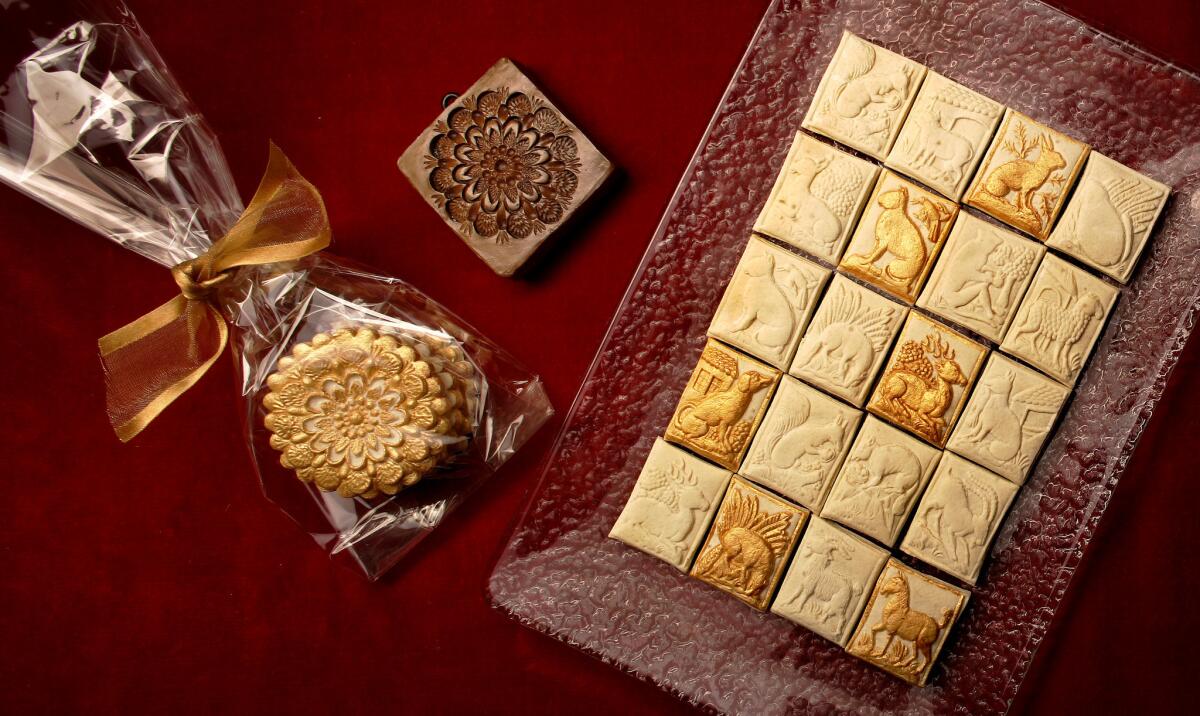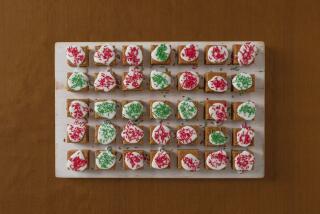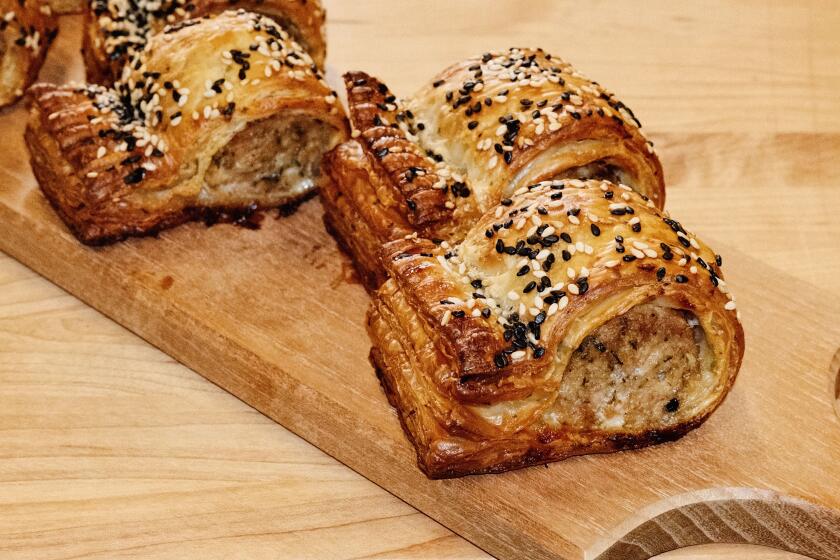Holiday cookie recipe: Springerle

German springerle are formed with wood or ceramic molds to create patterns such as snowflakes, acorns, Santas or the “little knights” after which they’re named. Recipe: Springerle cookies
Springerle are one gift that work just as well as ornaments or holiday decorations as they do as edible cookies. If you’re a dedicated cookie baker with a highly wrought sense of aesthetics, you might try your hand at these ornate German treats — the Christmas cookies of Swabia. The pale, embossed cookies are formed with beautiful wood or ceramic molds to create patterns — snowflakes, acorns, Santas or the “little knights” after which they’re named.
SPRINGERLE COOKIES
2 hours, plus resting and overnight drying time. Makes about 4 dozen 3-inch cookies
Note: Springerle molds can be found at select cooking and baking supply stores, as well as online. Anise extract can be found at cooking and baking supply stores, as well as at select grocery stores.
4 eggs
1/2 teaspoon salt
1/2 teaspoon anise extract
1 teaspoon finely grated lemon zest, loosely packed
4 cups (1 pound) powdered sugar, sifted
4 cups (1 pound) flour
1/4 teaspoon baking powder
Anise seed
1. In the bowl of a stand mixer, or in a large bowl using a hand mixer, beat the eggs for 5 minutes until very light in texture (the long beating time is important so the eggs are sufficiently whipped and lightened in texture).
2. Beat in the salt, anise extract and lemon zest until evenly incorporated, then slowly add the powdered sugar and beat an additional 5 minutes.
3. In a medium bowl, whisk the flour and baking powder. Slowly add the flour mixture to the egg mixture until incorporated and the dough is stiff. Remove the dough to a lightly floured surface and knead until smooth, about 2 minutes. Cover the dough tightly with plastic wrap and allow to relax at room temperature for 1 hour.
4. Remove one-fourth of the dough, keeping the rest tightly covered (it dries out quickly). On a lightly floured surface, roll out the dough to one-fourth-inch thickness. Lightly flour the dough and your mold(s), then press the mold firmly into the dough to make a detailed imprint. Repeat until all of the dough is imprinted. Cut around each imprint to form a cookie. Continue until all of the dough has been used.
5. Lightly scatter the surface of two or three rimmed baking sheets with anise seed (about 1 tablespoon per sheet) and lay the cookies over the seeds (do not press them down). (Reserve one of the anise seed-lined baking sheets to test the baking time for the cookies.)
6. Allow the cookies to dry on the baking sheets at room temperature for 24 hours.
7. Heat the oven to 275 degrees. Test the baking time for the cookies: Place two cookies (if you are using more than one mold, test two cookies from each mold) on the reserved anise-seed-lined baking sheet.
8. Bake the test batch until the tops of each cookie are firm and the bottom of each cookie is barely colored, about 25 minutes (the tops should have no coloring). Check the cookies after the first 10 minutes to make sure they are not puffy; if they are, remove the tray from the oven and gently press down the top of any domed cookies using a towel-lined hand. If all the cookies dome on top, your oven may be too hot; try another test batch at 250 degrees for 30 to 40 minutes.
9. When the correct temperature is set, bake the cookies, one tray at a time, until all of the cookies are baked. When the cookies are done, remove them to a rack to cool completely.
10. Store the cookies in an airtight container or sealable plastic bag. For softer cookies, store them with a slice of apple. The cookies will keep for weeks, and the flavor improves with age.
Each of 48 servings: 77 calories; 2 grams protein; 17 grams carbohydrates; 0 fiber; 1 gram fat; 0 saturated fat; 18 mg. cholesterol; 33 mg. sodium.
Love baking as much as I do? Follow me @noellecarter
ALSO:
25 edible homemade holiday gift ideas
26 ideas for the foodie on your holiday gift list
Browse thousands of recipes from our recipe database
More to Read
Eat your way across L.A.
Get our weekly Tasting Notes newsletter for reviews, news and more.
You may occasionally receive promotional content from the Los Angeles Times.










